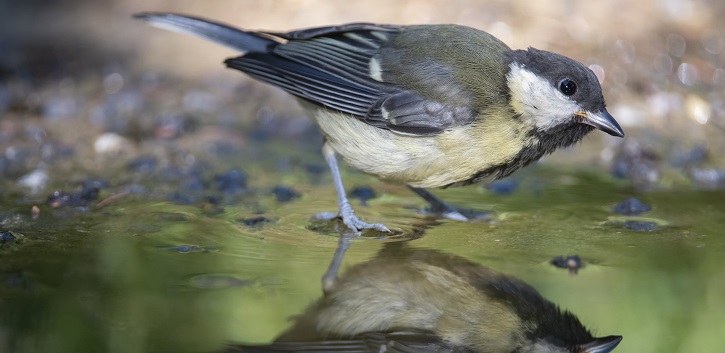In This Section
- Home
- About the College
- Governance
- College Committees & Steering Groups
- College Assembly
- College Council
- College Executive Management Committee
- College Academic Programmes and Curriculum Development Committee
- College Graduate Studies Committee
- College Research & Innovation Committee
- College Teaching Learning and Student Experience Committee
- College Student Recruitment and Outreach Committee
- College Sabbatical Research Leave Committee
- College of SEFS Adjunct Appointments Committee
- International Education Committee
- College Postgraduate Student Committee
- Athena SWAN Steering Group
- College Committees & Steering Groups
- Human Resources
- UCC STEM Awards
- Scholarships and Prizes
- Women in STEM Panel Talks
- Inaugural Professorial Lectures
- Athena SWAN in SEFS
- Proposal Calls
- Contact Us
- Science in Society Public Lecture Series
- Governance
- News
- Staff
- Schools and Departments
- Current Students
- Undergraduate Courses
- Postgraduate Courses
- International Students
- Research and Innovation
- Employability and Careers
- Outreach and Public Engagement
- Science Week
- Transition Year Programmes
Climate change occurring faster than birds can adapt

Climate change is occurring so rapidly that many animals may be unable to adapt, according to findings of an international study published in Nature Communications.
An international team of researchers evaluated more than 10,000 published scientific studies, and found that while animals are adjusting to climate change, these responses appear insufficient to cope with future rapid warming. The study focused mainly on birds and included common European species such as the magpie (Pica pica), the great tit (Parus major) and European pied flycatcher (Ficedula hypoleuca).
Animal adaptations 'not keeping pace with #climatechange': Cosmos https://t.co/IHXjKvykb0 #wildlife #space #environment
— EcoInternet (@EcoInternetDrGB) July 23, 2019
MORE w/ EcoSearch - news: https://t.co/2Mr0Uelg9j web: https://t.co/2y4Jhrk9RU
Risk of mass extinctions as climate changes faster than animals adapt, study finds https://t.co/izCiyDUDx4
— The Independent (@Independent) July 24, 2019
Risk of mass extinctions as climate changes faster than animals adapt, study finds https://t.co/MR6kPCVEMW
— Svein T veitdal (@tveitdal) July 24, 2019
Even common birds such as great tits, blue tits and guillemot cannot adapt fast enough pic.twitter.com/WDDY6g24lK
“These are common birds that were previously thought adaptable to climate change, so this is quite worrying” stated the co-author of the study, Dr Thomas Reed, Senior Lecturer in Zoology at University College Cork (UCC).
In wildlife, the most commonly observed response to climate change is an alteration in the timing of biological events such as hibernation, reproduction or migration (phenological traits). Changes in body size, body mass or other morphological traits have also been associated with climate change, but – as confirmed by this study – show no systematic pattern. The researchers extracted relevant information from the scientific literature to relate changes in climate over the years to possible changes in phenological and morphological traits. Next, they evaluated whether observed trait changes were associated with higher survival or an increased number of offspring.
“The findings are both good and bad”, continued Dr Reed. “On the one hand, the data show that many species are changing in ways that increase survival and reproductive success. But on the other, the models show that this may not be enough for populations to stay in the game long term, because the rate of adaptive change is too slow. The fear is that the prognosis for species of conservation concern, for which we had little data, could be even worse”.
The scientists hope that their analysis and the assembled data sets will stimulate research on the resilience of animal populations in the face of global change and contribute to a better predictive framework to assist future conservation management actions.
Birds and animals 'can't adapt to climate change quickly enough to survive in their natural habitats' https://t.co/DlS26TIu8O
— The London Economic (@LondonEconomic) July 23, 2019
Dr Reed co-authored this research with Professor Steven Beissinger, University of California in Berkeley and Prof. Stephanie Kramer-Schadt, Dr Viktoriia Radchuk and Dr Alexandre Courtiol, Leibniz Institute for Zoo and Wildlife Research in Berlin. The entire research team was composed of 64 international researchers.
Getting #toohot these days? Birds too!
— Alexandre Courtiol (@alexcourtiol) July 23, 2019
Check out our new paper in @NatureComms which looks at how bad species are coping with #climatechange. The answer: pretty bad! Birds adapt, but they don't do it fast enough. The paper is open:https://t.co/ot80gz9CYO#heatwave #HEATWAVE2019 pic.twitter.com/AWZ4UwY4FK
Animals are not adapting fast enough to keep up with #climatechange and even common birds (cf. rare species) could be at risk of #extinction, a new study has found. "These are species that adapt but even they are not adapting fast enough."#ActOnClimatehttps://t.co/oWeXo2J3Sa
— Lili (@climateleaf) July 24, 2019
College of Science, Engineering and Food Science
Coláiste na hEolaíochta, na hInnealtóireachta agus na hEolaíochta Bia
Contact us
Block E, Level 3, Food Science Building, UCC, Cork, T12 YN60.
